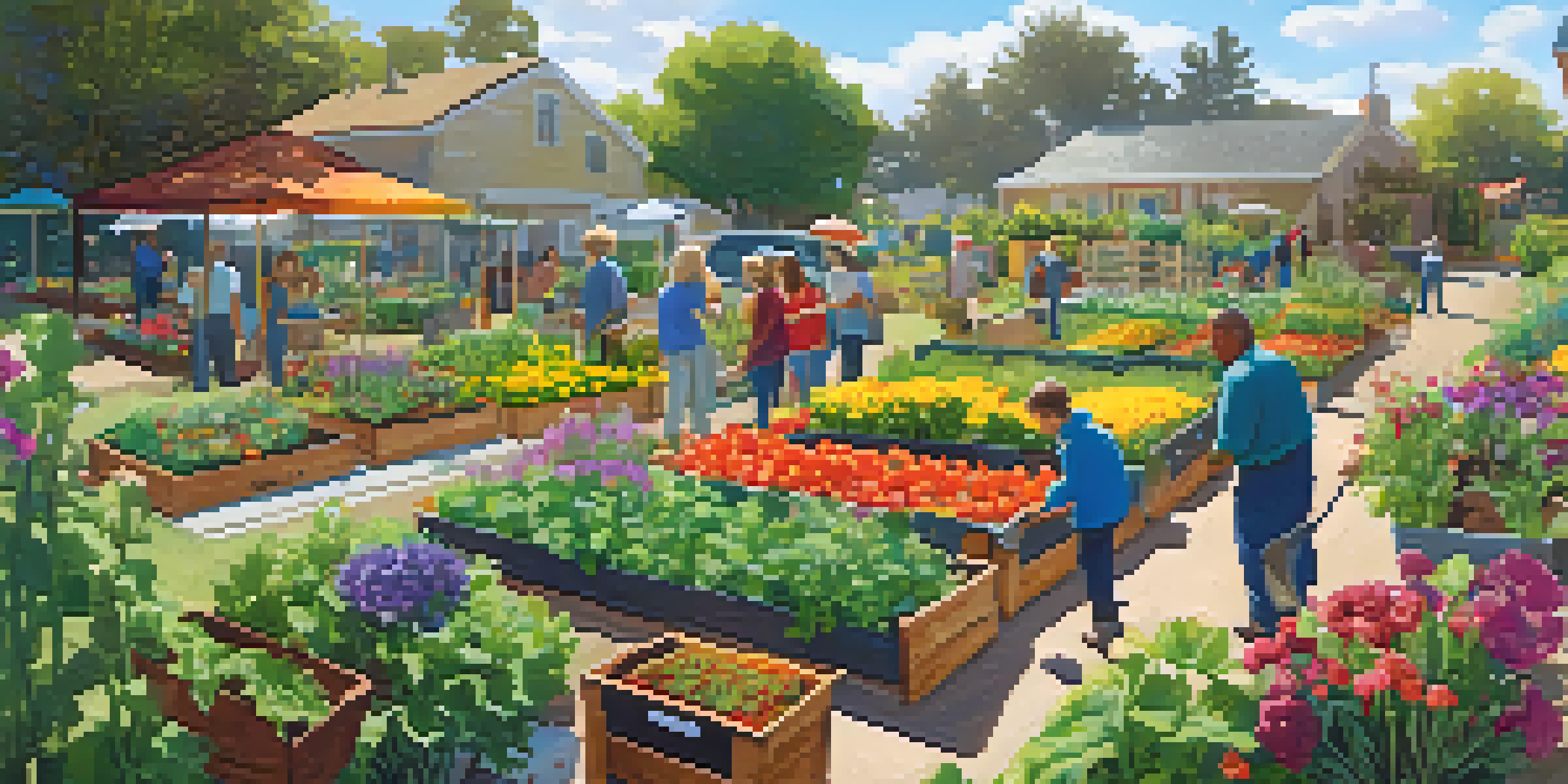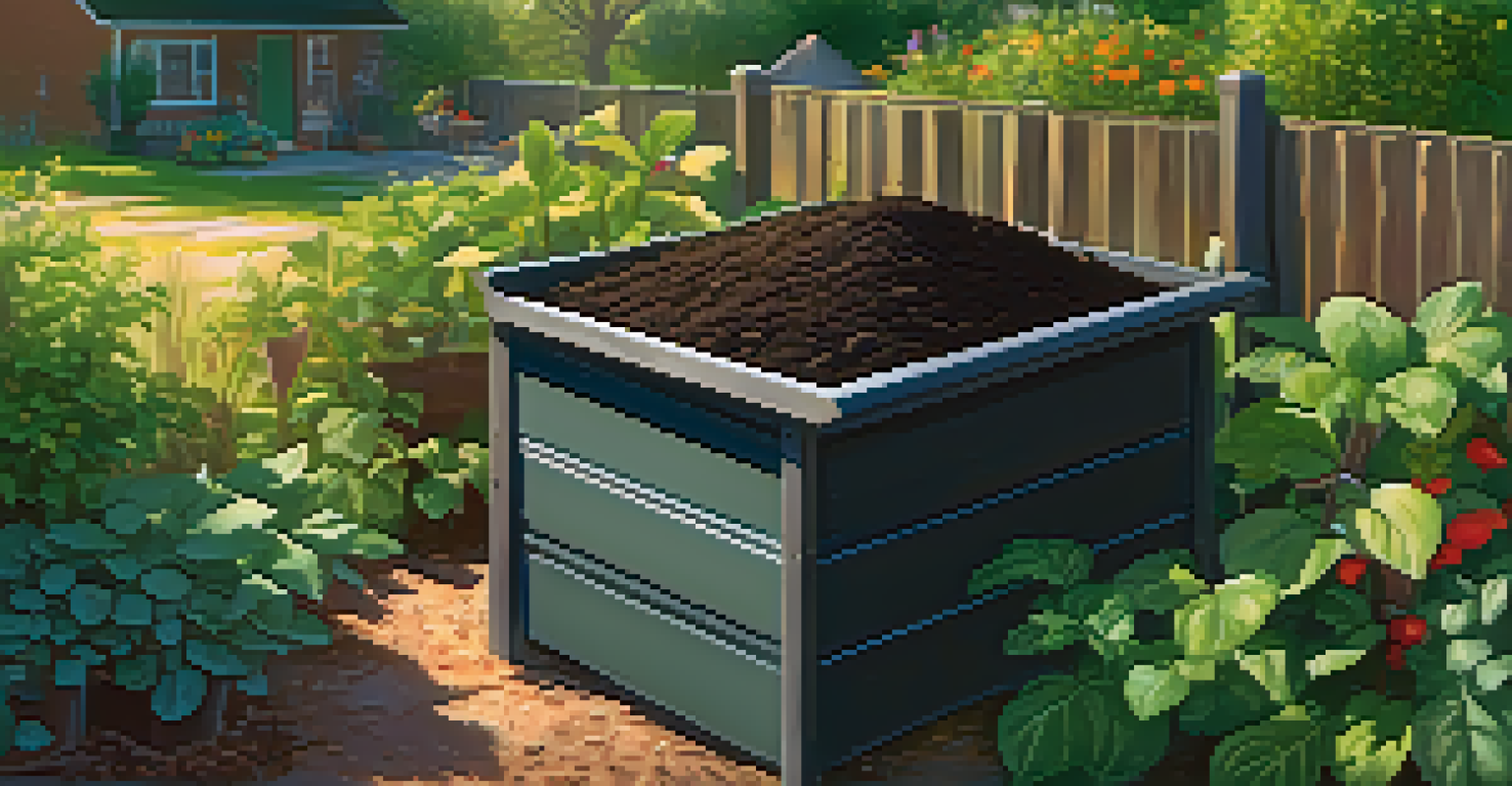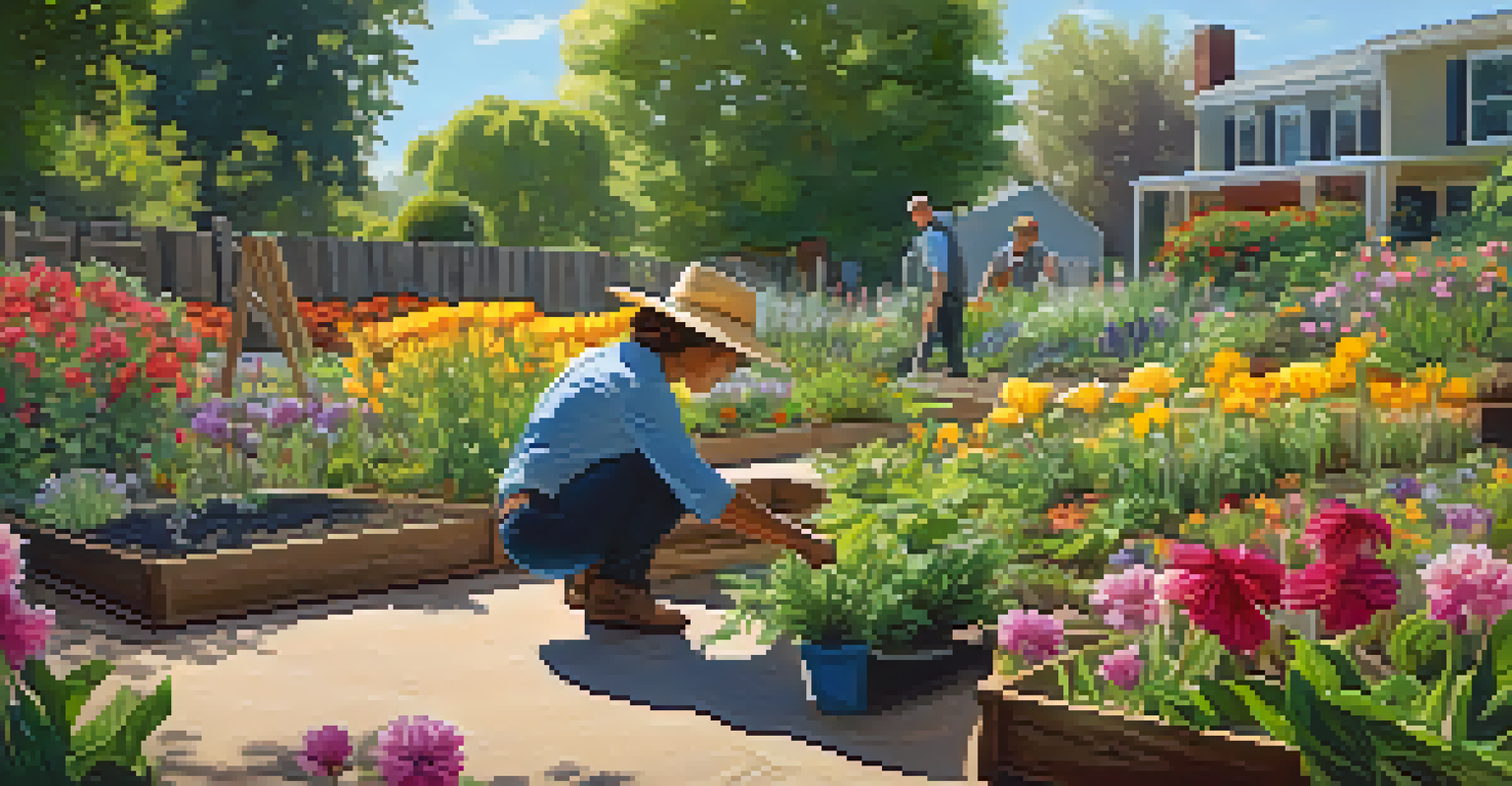Sustainable Practices in Carlsbad's Community Gardens Today

Introduction to Carlsbad's Community Gardens
Carlsbad's community gardens are more than just patches of green; they are vibrant hubs of sustainability and community engagement. These gardens provide residents with opportunities to grow fresh produce while fostering a sense of belonging. As urbanization increases, such green spaces play a crucial role in enhancing local ecosystems and promoting biodiversity.
The greatest threat to our planet is the belief that someone else will save it.
In these gardens, community members come together to cultivate their plots, share tips, and celebrate the fruits of their labor. This sense of community not only strengthens social ties but also encourages sustainable practices among neighbors. By working together, residents learn the importance of sustainable gardening methods that benefit both the environment and their health.
From organic gardening techniques to composting, these gardens embody a commitment to sustainability. They offer a hands-on approach to understanding where our food comes from and how we can grow it responsibly. In this article, we will explore the various sustainable practices thriving in Carlsbad's community gardens.
Organic Gardening: A Key Component
One of the most significant sustainable practices in Carlsbad's community gardens is organic gardening. This method avoids synthetic fertilizers and pesticides, relying instead on natural processes to enhance soil health and plant growth. By using organic techniques, gardeners not only produce healthier food but also protect the local ecosystem from harmful chemicals.

In community gardens, participants often share organic gardening tips and resources, creating a knowledge-sharing environment. For example, composting kitchen scraps and yard waste transforms potential trash into nutrient-rich soil amendment. This practice reduces landfill waste while enriching the garden beds, showcasing how sustainability can be both practical and rewarding.
Community Gardens Foster Sustainability
Carlsbad's community gardens promote sustainable practices through organic gardening, water conservation, and biodiversity, enhancing both local ecosystems and community bonds.
Moreover, the adoption of organic practices helps in conserving water and promoting biodiversity. By encouraging native plants and beneficial insects, these gardens create balanced ecosystems that thrive without chemical interventions. This approach not only benefits individual gardeners but also contributes to the community's overall environmental health.
Water Conservation Techniques
Water conservation is critical in California, and Carlsbad's community gardens are leading the way with innovative techniques. Many gardeners utilize drip irrigation systems, which deliver water directly to the plant roots, minimizing waste. This method not only conserves water but also promotes healthier plants by preventing waterlogging and reducing fungal diseases.
We do not inherit the earth from our ancestors, we borrow it from our children.
Additionally, rainwater harvesting is becoming popular in these gardens. By collecting rainwater in barrels, gardeners can rely on this natural resource for irrigation during dry spells. This practice not only reduces dependence on municipal water supplies but also encourages gardeners to be mindful of water usage.
These water-saving practices exemplify how community gardens can serve as models for sustainable living. By engaging in water conservation, residents learn the importance of being eco-conscious and develop habits that extend beyond the garden. Ultimately, these techniques ensure that the gardens remain vibrant and productive, even in challenging drought conditions.
Soil Health and Composting
Healthy soil is the foundation of any successful garden, and Carlsbad's community gardens prioritize soil health through various sustainable practices. Composting is a central aspect of this effort, allowing gardeners to recycle organic waste into nutrient-rich compost. This practice not only improves soil structure but also enhances its fertility, leading to more robust plant growth.
Gardeners often host composting workshops, sharing knowledge on how to create and maintain compost bins. By turning kitchen scraps, yard waste, and other organic materials into compost, they actively reduce landfill waste and promote a circular economy. This communal effort not only benefits individual plots but also strengthens the collective commitment to sustainability.
Education Empowers Local Residents
Through workshops and events, community gardens engage residents of all ages, teaching them sustainable gardening techniques and fostering a culture of environmental stewardship.
Moreover, using cover crops and mulching techniques further enriches the soil. Cover crops prevent erosion, suppress weeds, and enhance soil nutrients when tilled back into the ground. These practices underscore the importance of maintaining soil health as a sustainable gardening principle that supports both the garden and the larger ecosystem.
Biodiversity and Native Plant Use
Biodiversity is a cornerstone of sustainable agriculture, and Carlsbad's community gardens embrace this concept by incorporating native plants into their designs. Native plants are well-adapted to the local climate and soil conditions, requiring less water and maintenance compared to non-native species. This practice supports local wildlife, including pollinators like bees and butterflies, which are essential for healthy ecosystems.
Gardeners often collaborate to create diverse plantings that attract beneficial insects and wildlife. By fostering a variety of plants, these gardens become vibrant ecosystems that support not only food production but also ecological balance. This diversity helps to reduce pests and disease, making organic gardening even more effective.
Furthermore, many community gardens host educational workshops on the importance of biodiversity. These sessions encourage residents to consider their gardening choices and how they impact the environment. By promoting native plant use, Carlsbad's community gardens lead by example, showing that sustainable practices can seamlessly blend beauty and functionality.
Community Engagement and Education
Community engagement is at the heart of Carlsbad's community gardens, where education plays a vital role in promoting sustainable practices. These gardens often organize events, workshops, and volunteer days to involve residents of all ages. By participating, individuals not only learn sustainable gardening techniques but also build connections with their neighbors.
Educational programs may cover topics such as permaculture, organic gardening, and composting. These sessions empower community members to take charge of their food sources while fostering a culture of sustainability. Engaging with the community creates a supportive environment where everyone can share knowledge and experiences.
Collaboration Enhances Community Health
The collaborative spirit in Carlsbad's community gardens not only improves food production but also strengthens social ties, creating vibrant ecosystems that benefit everyone.
Moreover, the gardens often collaborate with local schools and organizations to introduce sustainability concepts to younger generations. This outreach ensures that the values of environmental stewardship are passed down, cultivating a sense of responsibility for future caretakers of the planet. Ultimately, community engagement transforms these gardens into living classrooms, enhancing both personal and collective growth.
Conclusion: A Sustainable Future for Carlsbad
As we explore the sustainable practices thriving in Carlsbad's community gardens, it becomes clear that these spaces are vital for both the environment and the community. They serve as a testament to what can be achieved when residents come together to cultivate not only food but also a shared commitment to sustainability. By embracing organic gardening, water conservation, and biodiversity, these gardens set a standard for eco-friendly living.
The community's dedication to education and engagement ensures that sustainable practices will continue to flourish. As more residents participate, the gardens evolve into rich ecosystems that benefit both people and the planet. This collaborative spirit fosters a culture of sustainability that extends beyond the garden gates, influencing how residents interact with their environment.

In conclusion, Carlsbad's community gardens are more than just places to grow food; they are beacons of hope for a sustainable future. By prioritizing sustainable practices, these gardens not only enhance local resilience but also inspire a collective movement towards greener lifestyles. Together, we can nurture our gardens and our community, ensuring a thriving environment for generations to come.